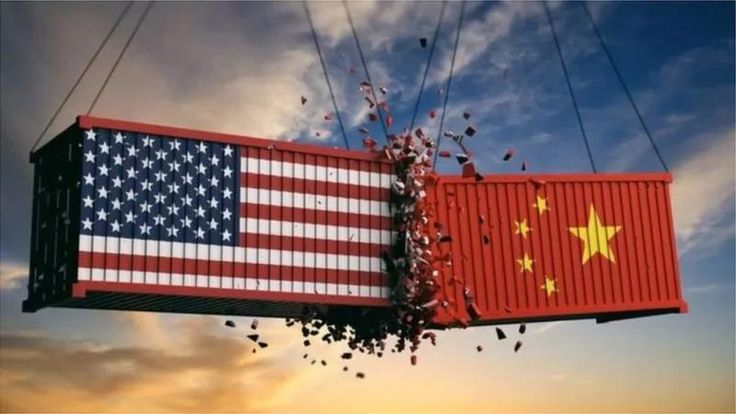How the US-China Trade War Affects Indonesia's Economy and Export Markets
Explore how the ongoing US-China trade war presents both opportunities and challenges for Indonesia's economy, impacting exports, investments, and supply chains.
Admin
4/16/20253 min read


Indonesia’s Position in the US-China Trade War: Opportunities and Challenges
The ongoing trade tensions between the United States and China have created ripple effects throughout the global economy.
As the world’s two largest economies engage in tariffs, trade restrictions, and political disputes, many smaller economies, including Indonesia, are caught in the middle. While some opportunities have emerged for Indonesia in this complex landscape, the trade war also presents certain challenges that must be navigated carefully.
Opportunities for Indonesia in the US-China Trade Conflict
Despite the disruptions caused by the US-China trade war, Indonesia stands to gain from several key opportunities.
1. Diversification of Export Markets
With the imposition of tariffs by both the US and China, companies in these countries are seeking alternative suppliers. Indonesia, with its rich natural resources, is well-positioned to step in as a substitute supplier for a variety of products. Key sectors that benefit include:
Agricultural products like palm oil, rubber, and cocoa, where Indonesia can take advantage of reduced access to Chinese and American goods in their respective markets.
Manufacturing sectors, including electronics and textiles, where Indonesian exports can fill gaps created by tariff barriers.
2. Increased Demand for Southeast Asian Products
As China faces higher tariffs on goods exported to the US, Chinese manufacturers may seek alternatives to maintain production. Indonesia, as part of the Southeast Asian region, may benefit from a shift in manufacturing and an increase in demand for local products.
3. Foreign Direct Investment (FDI) Shifts
The trade war has also led to shifts in FDI as companies reassess their production strategies. Some US and Chinese companies are relocating their manufacturing operations to countries like Indonesia to avoid tariffs and increase market access to the ASEAN region. This could result in more investments in industries such as electronics, automotive, and textiles.
4. Boost to Regional Trade Agreements
The US-China trade war has accelerated the push for stronger regional trade agreements like the Regional Comprehensive Economic Partnership (RCEP). Indonesia’s participation in such agreements opens up greater market access, enabling the country to tap into broader regional supply chains and strengthen its position in global trade.
Challenges Faced by Indonesia in the US-China Trade War
While there are clear opportunities, Indonesia also faces a number of challenges stemming from the US-China trade dispute.
1. Impact on Indonesia’s Exports to China
China is one of Indonesia’s largest trading partners, and the imposition of tariffs by both the US and China on goods could affect the flow of goods between the two countries. For instance, Indonesia’s raw materials and agricultural products like palm oil and coal may be subjected to new tariffs or trade restrictions, which could slow down exports.
2. Volatility in Commodity Prices
Indonesia’s economy is heavily dependent on commodities such as oil, gas, and palm oil. The ongoing tensions between the US and China have led to fluctuations in global commodity prices. The volatility in demand and supply could affect Indonesia’s export revenues, especially when prices of key commodities like palm oil are heavily influenced by the US-China relationship.
3. Disruption in Supply Chains
Both China and the US are major players in global supply chains. As tariffs and trade disruptions unfold, industries across the globe, including in Indonesia, are likely to experience disruptions in supply chains. This could affect the flow of raw materials and components, increasing production costs and affecting businesses relying on efficient international supply lines.
4. Geopolitical Risks and Uncertainty
The US-China trade war also adds a layer of geopolitical risk for countries caught between the two giants. Indonesia’s position is sensitive, as maintaining trade relations with both countries is crucial for its economy. Indonesia must navigate this delicate balancing act, as any shift in the trade policies of the US or China could have long-term implications for the country’s trade relations and overall economic stability.
Conclusion: Indonesia’s Balancing Act
The US-China trade war has introduced both challenges and opportunities for Indonesia. While the country stands to benefit from increased export demand, foreign investments, and stronger regional trade agreements, it must also navigate the potential disruptions in commodity prices, supply chains, and geopolitical risks.
To maximize the benefits and minimize the risks, Indonesia must adopt a strategic approach by strengthening trade agreements, diversifying export markets, and ensuring that it remains a competitive player in global supply chains.
At PT Linggau Jaya Eksportir, we continue to monitor global trade dynamics, including the effects of the US-China trade tensions, to ensure our products remain competitive and our supply chains efficient in this rapidly changing environment.



